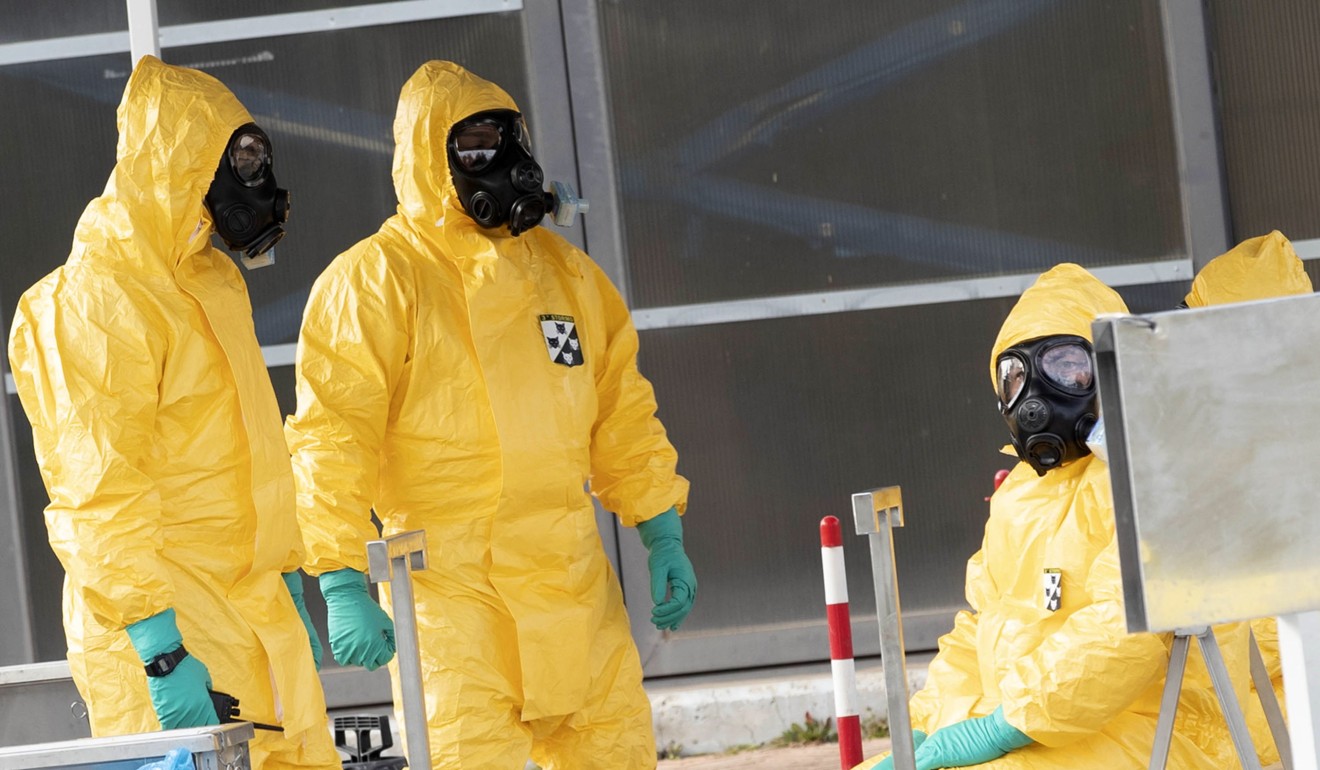
Coronavirus: WHO still urges quarantine and other ‘containment measures’ despite rising doubts
- ‘Our objective remains containment,’ says Tedros Adhanom Ghebreyesus, the World Health Organisation director general
- Taiwan researchers to take part by internet in research forum on Tuesday
The World Health Organisation urged countries on Monday to continue quarantining suspected coronavirus cases and tracing their contacts – even as a growing number of human-to-human transmissions among patients with no history of travel to China has raised questions about the effectiveness of these measures.
Tedros Adhanom Ghebreyesus, the WHO’s director general, said that there remained a window of opportunity for these “containment measures” to limit the outbreak outside China, where the bulk of coronavirus cases have occurred.
Doubts about these measures have heightened in recent days as initial studies, epidemiologists and health officials have suggested that the contagion could be extremely infectious and still have a low fatality rate – making it more comparable to the common flu, say, than the deadly Sars virus.
Singapore’s Prime Minister Lee Hsien Loong on Saturday suggested that the city state – which has 45 confirmed cases – might reconsider its containment strategy if the coronavirus proved more widespread but less lethal than Sars.
“If we still hospitalise and isolate every case, our hospitals will be overwhelmed,” said Lee. “At that point, provided that the fatality rate stays low like flu, we should shift our approach.”
The WHO’s Tedros conceded on Monday that detection of the “onwards transmission” cases of coronavirus “could be the spark that becomes a bigger fire” – that is, possibly start a wider outbreak.
“But for now it’s only a spark. Our objective remains containment,” he said.
Officials at the Monday briefing in Geneva, Switzerland, by the WHO, the United Nations health agency, also took questions about a business meeting last month in a luxury hotel in Singapore that is now considered a possible focal point for onwards transmission to countries including South Korea, France and Britain.
One Briton who attended the meeting, which was organised by his employer Servomex, a global gas analysis firm, is now believed to have passed the virus to at least 11 other people after the three-day event, which concluded on January 22.
After the event, the man travelled to the French ski resort of Les Contamines-Montjoie near Mont Blanc before returning to his home in the seaside British town of Hove.
Among the people believed to have been infected by him are five people – including a nine-year-old child – who stayed at the French resort during the time the man was there.
Singapore confirms 2 new coronavirus cases, raising total to 45
Singaporean officials have confirmed that six others – a Malaysian, two South Koreans and three Singaporeans – were infected after attending the business meeting at the city state’s Grand Hyatt hotel.
Michael Ryan, the WHO’s head of emergency programmes, said that it was “way too early and much more of an exaggeration to consider the Singapore conference event a super-spreading event”.
He said the event was not comparable to the super-spreading that occurred in Hong Kong’s Hotel Metropole and Amoy Gardens during the 2002-03 Sars outbreak.
As to whether events like conferences that draw international attendees pose a public safety threat, Ryan said that such events must have “risk management procedures”.

“We're not going to be in a position to say at the slightest possibility that there may be possibly an infection associated with [the coronavirus] that we are going to cancel every event,” Ryan said. “We need to be calm, we need to be measured, we need to be driven by risks.”
Separately, asked whether experts from Taiwan would be taking part in the WHO’s research forum to convene on Tuesday to share ideas about mitigating the outbreak, Ryan said a “number of Taiwanese colleagues” would participate via the internet.
Tedros said he wanted participants at the forum to “focus on science”.
Quarantine measures ‘drastically reduce’ number of people entering Hong Kong
“There are some quarters who would like to politicise it, I think we have to avoid that,” he said. “We want scientists who would really focus on the problems and give us their solutions.”
Taiwan, a self-ruled island of 23 million that China considers a renegade province, has bristled for weeks at the WHO for denying it representation at the world health body even though it has at least 18 confirmed cases of coronavirus.
Taiwan is denied membership in United Nations-linked organisations that only recognise China.
Taipei last week slammed Beijing for continuing to block its access to WHO, claiming that the mainland government was “putting political considerations over people’s health and safety”.

